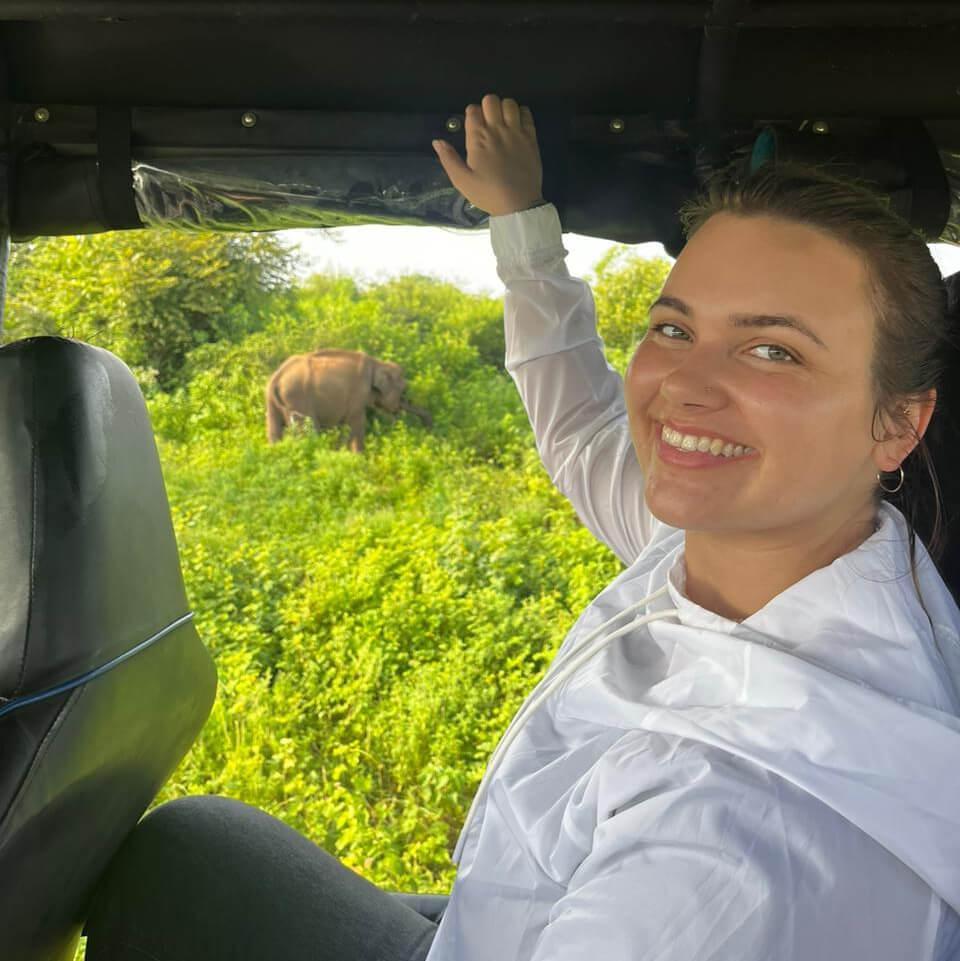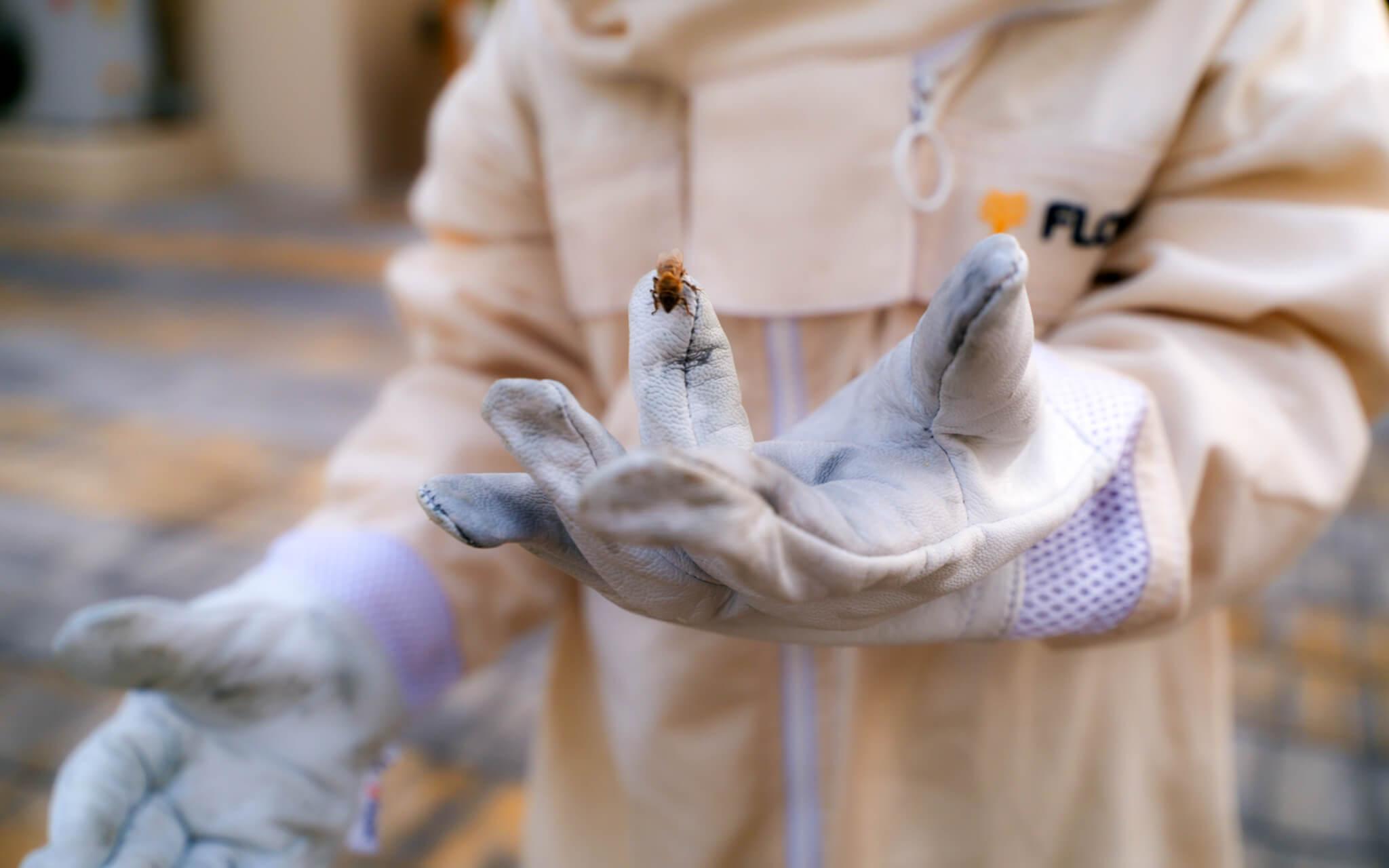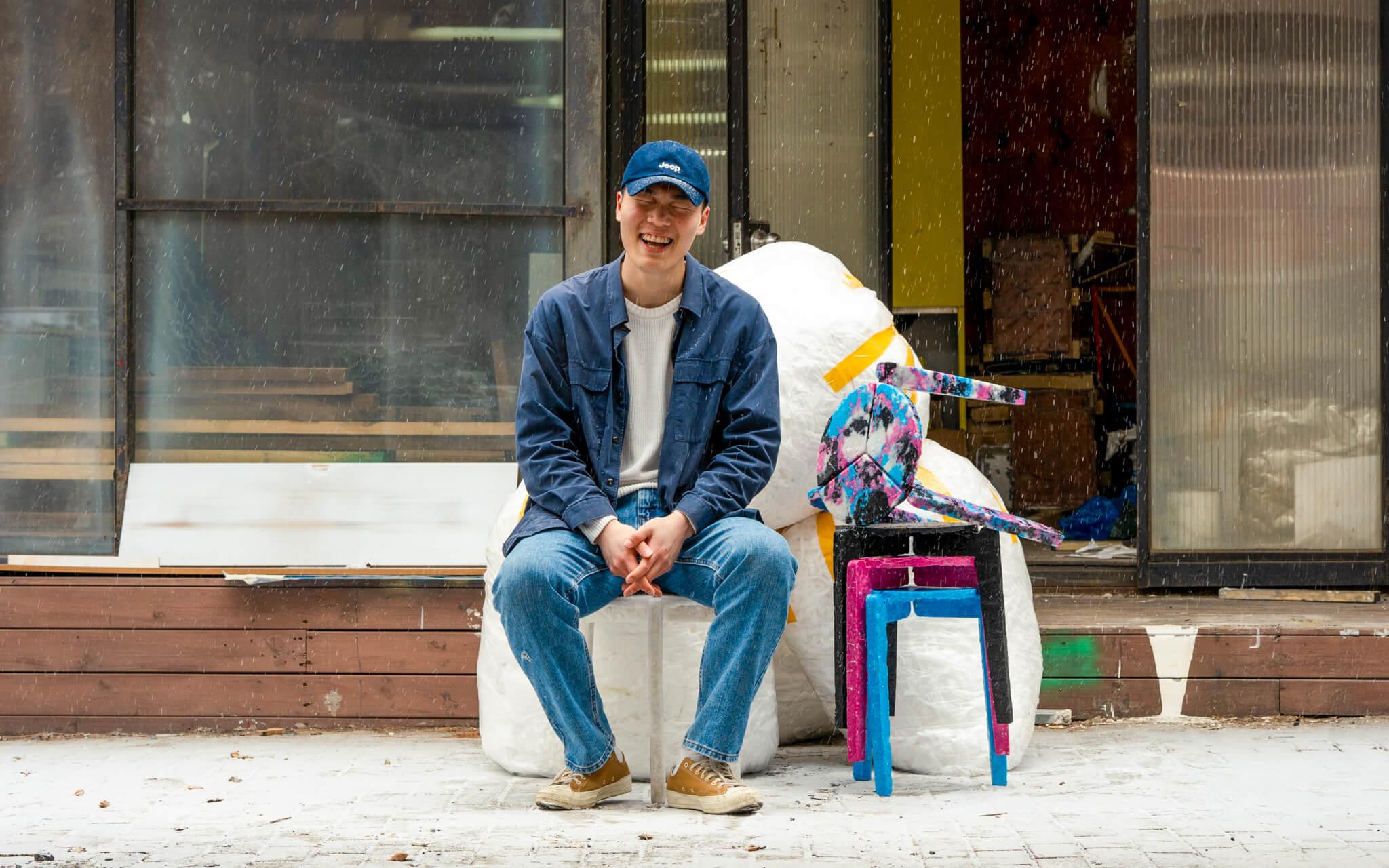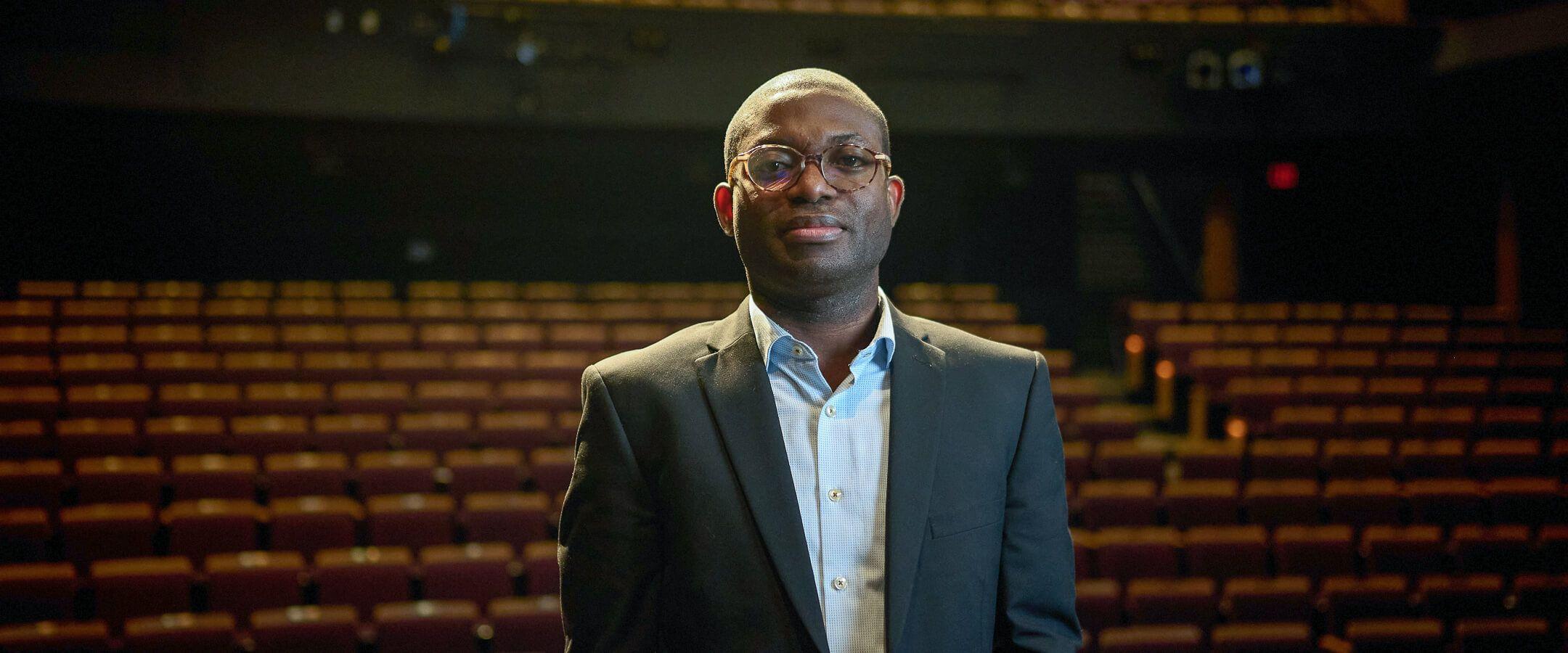From Cup of Coffee to Coffee Cup
Ricardo Garcia and his partner, Daniela, realised their morning coffee habit was brewing up a lot of waste. Determined to have a bigger impact on climate action, Ricardo and Daniela have created innovative coffee cups made from their favourite morning brew: Colombian coffee grounds.
Brew. Sip. Check the news. Clean up. Repeat.
And repeat and repeat and repeat.
Like many of us, Ricardo Garcia and his partner Daniela found themselves enjoying more coffee than usual at the start of the pandemic. Each morning ritual led to a growing awareness of the waste piling up in their trash bin.
“We were spending all of our time at home and drinking loads of our favourite Colombian coffee. We started to become really aware of the amount of coffee waste just the two of us produced each day,” Ricardo recalls. “If this was the amount of waste of two coffee lovers, how much coffee waste does the world have each day?”
He wasn’t just guessing - coffee production generates more than 23 million tonnes of garbage annually. While some countries make efforts to repurpose their coffee waste, approximately 75% of it ends up in landfills, with only 25% of it repurposed - often as agricultural products like fertiliser.


A Colombian native currently living in Miami, Ricardo is no stranger to the effects of climate change. “In Miami specifically, there’s been drastic changes in temperatures recently, and more hurricanes in the Caribbean. Same in Colombia. Up until the pandemic, I never connected the dots and realised I could be doing more in terms of climate action.”
Ricardo, a former IT consultant, and his partner, an industrial engineer with expertise in materials, wondered if coffee—nature’s energiser—could give back to the planet rather than collect in its landfills.
They ultimately wondered - “What if all this waste is not really meant to be waste?”
Sitting at their kitchen table, the duo realised that the key to reducing coffee waste might lie closer to their hearts than they initially thought. Could the future of coffee sustainability come from their favourite coffee’s origin – Colombia? With their Colombian heritage as a driving force, Ricardo and Daniela were inspired to find a way to repurpose Colombia's coffee waste into sustainable products while uplifting the local community.
In 2022, they founded Coffee Kreis, a startup with the goal of transforming coffee grounds waste into durable, eco-friendly coffee mugs. “Kreis,” taken from the German word for circle, reflects their commitment to sustainability and the circular economy.
The journey wasn’t easy. “We had no idea what we were doing at first – we weren’t familiar with which materials to use or how to create the products we had in mind,” Ricardo admits. Manufacturers in Colombia were hesitant to experiment with coffee grounds, unsure how it might affect their machinery. “Luckily, at that time, a lot of machinery was underutilised due to the pandemic lockdowns. We were able to take advantage of that to test and test and retest.”
After a year and a half of trials, the first coffee cup was born. Made of discarded coffee grounds and plant-based binders, Kreis cups are heat-resistant, reusable, shatter-proof – and even smell like coffee. Designed to last 10 years, Coffee Kreis encourages its community to compost their cups or return them to be reprocessed into new ones.
Since its inception, Coffee Kreis has hit the ground running, diverting 5,580 kilograms of coffee grounds from landfills and reducing 1,896 cubic metres of methane emissions.
In Miami specifically, there’s been drastic changes in temperatures recently, and more hurricanes in the Caribbean. Same in Colombia. Up until the pandemic, I never connected the dots and realised I could be doing more in terms of climate action.
One of Garcia’s proudest accomplishments is keeping Coffee Kreis 100% Colombian. “We source all of our coffee grounds from Columbian hotels and restaurants and produce everything in the country as well. People have been very supportive and enthusiastic - in part because we’re local. That community involvement and engagement is really valuable.”
As Colombia gradually embraces sustainable products, with new regulations aimed at reducing single-use plastic, local initiatives offering eco-friendly alternatives are becoming increasingly popular. "Environmentally conscious local businesses are the go-to for Colombians still getting used to the idea of sustainable solutions," Ricardo explains. He believes that grassroots initiatives play a crucial role in fostering acceptance in local communities.
"Our biggest obstacle has been convincing cafes to switch to Coffee Kreis cups rather than conventional single-use plastic cups. There's a big education component to our product, which is well received if we have the time to sit down with potential partners and have a conversation - over a cup of coffee, naturally."
Throughout the process of engaging coffee lovers with their product, Ricardo realised that sustainable solutions really start by engaging one-on-one with the consumer. “Our most exciting initiative to engage the community is a pilot program we’ve just launched in Madrid,” Ricardo shares. The program allows customers to receive a free cup and discounts on their coffee orders as part of a monthly subscription. “As long as our partner cafes are comfortable knowing that their audience is interested in conscious consumption, they’re willing to go the extra mile towards a more sustainable café and community.”
Ricardo’s biggest takeaway from his journey has been the interconnectedness of everything. “Each and every one of our actions causes a ripple effect, encouraging other communities to be more aware of their consumption. I see this in every cafe we interact with.” He’s found that many are genuinely interested in supporting sustainable solutions; and if it feels approachable to them, most people are willing to make conscious choices to align with their values.
Even if it's small sips, one at a time.
Brew. Sip. Rethink the familiar. Innovate. Repeat.
Most Popular
The Climate Tribe delivers stories about Biodiversity and Conservation, Circular Economy, Food and Water , and how they intersect with climate.
Subscribe
Get the latest stories inspiring climate action around the globe straight to your inbox.






